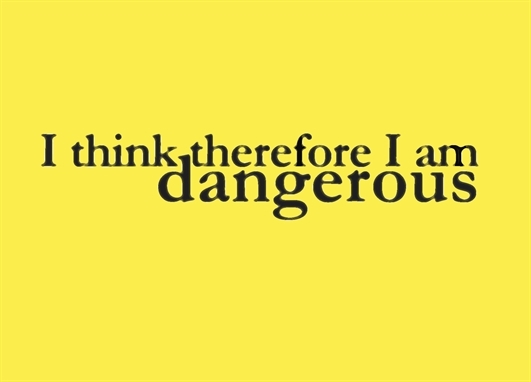Only 1 percent of those who responded to a survey carried out by members of the Anarcho-Capitalism group, a popular forum on Reddit, were women.
The anonymous survey, organized by a user named Andkon, quizzed users on their political preferences, level of education, the level of their dislike for the state, their religious beliefs, and whether they owned any digital currency, among other questions.
The results of the survey, also published on Reddit — regularly billed as the “front page of the internet” — indicated that among the 625 people who responded, 72 percent weren’t religious, six out of 10 owned bitcoins and one out of every five owned the lesser-known dogecoin. Moreover, 45 percent based their Anarcho-capitalism in both ideological and utilitarian thinking.
Anarcho-capitalism, or libertarian anarchism, is a political philosophy which calls for the elimination of the state, the defense of individual rights, and for the provision of public services, including motorways, public security, and the administration of justice, through voluntary relationships. Yet despite the apparent absence of a gendered element in the key tenets of the philosophy, its current adherents seem to be overwhelmingly male.
The PanAm Post spoke with several libertarian women to find out their opinion on why the poll reflected so little apparent female participation in the movement.

Why So Few Female Libertarians?
Gabriel Romano, administrator of the Facebook page Mujeres Liberal-Libertarias (Liberal-Libertarian Women) suggests that the shortage of women is due to the fact that women, rightly or wrongly, typically rely on support systems which remain in hands of the state, without private alternatives being immediately clear.
“Kindergartens, benefits, pensions, foods, education, health: these are matters which constantly preoccupy women who are mothers, and many who are not. They completely lack an accurate perception of the viable alternatives in accessing these goods and services outside of the statist dependency paradigm,” says Romano.
Of those who follow Romano’s page, 40 percent are men and 60 percent are women, of a total of 4,587 individuals.
“When I look at the messages that I receive, there are many people that approach the page primarily because they like our classification as “neutral.” That’s to say, neither to do with economics or politics in themselves, but simply about libertarian thought. And they stick around, and they agree with the posts that they read, if perhaps not all of them, and they begin to become more comfortable with references to basic libertarianism,” she says.
For Romano, libertarian thought requires a minimal understanding of economics, “and in this field, the little that women have read, even among the few that have read anything at all, largely comes from hegemonic, mainstream thought.”
But she suggests that many women come to the Facebook page and end up staying, telling her that they always learn something from the ongoing discussion. “And this seems to me to be a vital feminine aspect: I take a lot of care, in general, that the profile of content is didactic. I’m not interested in straw-man debates, nor do I tolerate aggression or belligerent vocabulary,” says the Argentinean, now based in South Africa.
“Something stupid might come up every now and then, but the page isn’t a place for inflamed, angry arguments — something which I see usually happens on similar pages — but fundamentally a place for learning,” she adds, noting that women tend to escape the “phallic measuring” dynamic that men often seem to revert to.
“And not because they’re not forceful or because they lack good arguments, but because they inhibit themselves much more quickly, men are fierce in criticizing their opinions, and many can’t put up with the verbal mistreatment.”

A Changing Trend
For her part, US activist Julie Borowski, perhaps better known as Token Libertarian Girl, tells the PanAm Post that while the proportion of men and women in the libertarian sphere continues to be unequal, things are gradually changing.
“The ratio of men to women in libertarian circles is still uneven. This isn’t unusual among more fringe subcultures. However, the number of female libertarians is absolutely growing. As libertarianism becomes more mainstream, the political philosophy is attracting a wide variety of people,” Borowski says.
“I’ve been an active libertarian for about eight years now and I’m no longer the “token libertarian girl” at libertarian events. We’re seeing more women embrace the label and becoming outspoken about their support,” she adds.
Whitney Neal, director of marketing at the Bill of Rights Institute, similarly believes that many women are essentially libertarian without knowing it.
“I think that a lot of women, by belief and principle, are libertarian like myself. But they don’t necessarily realize it. Libertarians are such a diverse group and we are often portrayed by the media in unflattering ways that keep people — not just women — from identifying with us,” Neal argues.
“But when they are exposed to the very basis of our beliefs in individual liberty and responsibility they almost always agree. I think it’s our job — as libertarian women — to carry the torch. We also have to be better as liberty lovers at how we handle questions and disagreements,” she adds.
“I often see people ask very good questions of a libertarian and the response is defensive rather than inviting which can be intimidating. Liberty is universal!”
 Versión Español
Versión Español












